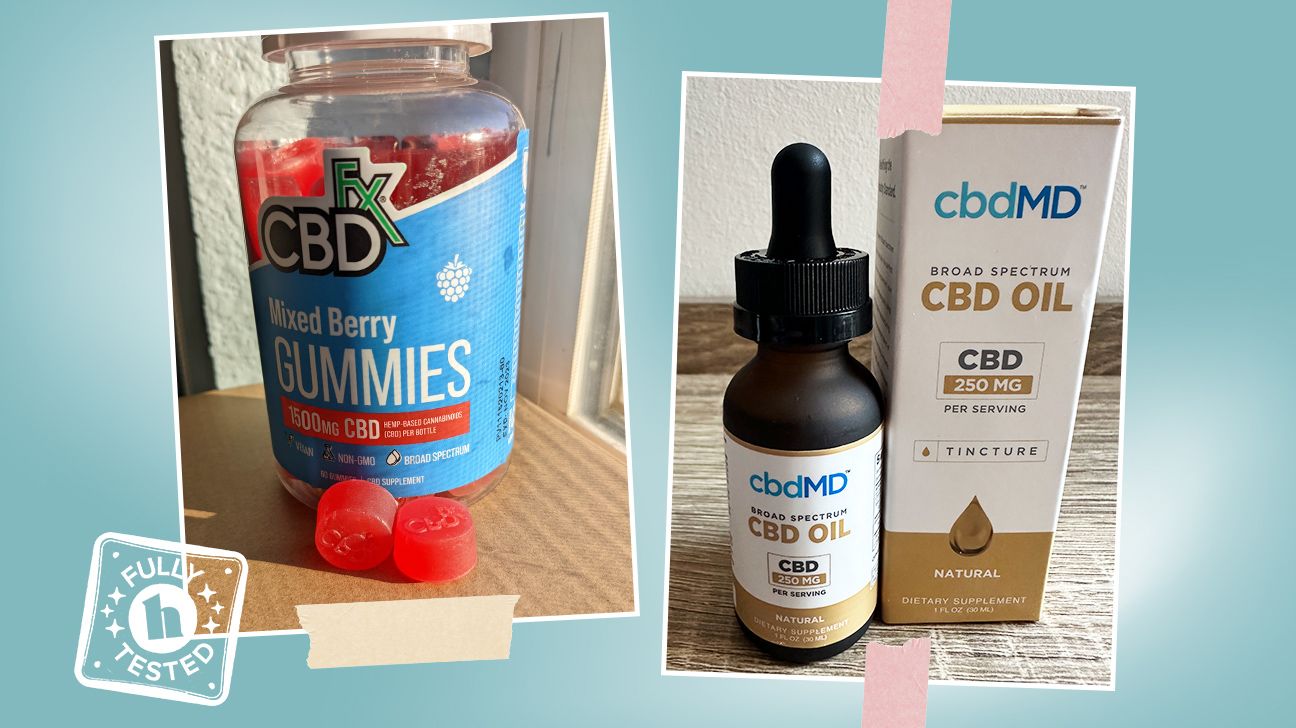Key takeaways
- There’s little research on CBD for energy and focus, but some anecdotal reports suggest it may work for some people.
- Some research indicates that CBD may help promote better sleep and ease pain and discomfort. If these things are causing your energy to dip during the day, then CBD may be a good option for you.
- Our testers tried several CBD products for daytime use, including Aspen Green Relief Cooling Cream and Joy Organics Full Spectrum CBD Oil.
Research on cannabidiol (CBD) for energy and focus is extremely limited. However, some anecdotal evidence suggests it may work for some people.
We’ve been testing CBD products since 2022. While testers often note that CBD makes them feel sleepy, a few products stood out for making testers feel more energetic and productive, sometimes by way of better sleep and by quieting racing thoughts or nagging pains.
We’ve gathered some of the best CBD products for daytime use and a couple of options to support better sleep, which may help people feel better during the day.
• 750 mg or 1,500 mg per 30-mL bottle
For this article, we chose CBD products that may help with sleep issues, pain, and anxiety, all of which might hinder your ability to feel energized and focused.
We selected products based on criteria we think are good indicators of safety, quality, and transparency. As a part of our vetting process, we consider:
- the product’s composition, ingredients, and overall quality
- any third-party certifications
- the company’s reputation and business practices
- any lab test results
- marketing claims
We have also tested all of the products we recommend here and provided feedback on how they affected our sleep quality and daily pains, which tend to hurt our energy levels and ability to focus.
We focused on products that testers found did not make them drowsy.
A
Still, some people take CBD in the hopes of improving their sleep, lessening anxiety, or relieving pain, all of which may affect energy levels.
First, it’s important to research and carefully consider a product before making a purchase. There are
Additionally, CBD has been associated with
CBD isn’t safe to use while pregnant or breastfeeding.
There are a handful of potential side effects of taking CBD, including:
- fatigue
- diarrhea
- changes in appetite
- changes in weight
Some
CBD might interact with certain medications. If you’re taking a medication that carries a grapefruit warning, avoid taking CBD without a healthcare professional’s approval. This is because CBD and grapefruit change the way the liver metabolizes certain substances.
To be on the safe side, it’s always best to talk with a healthcare professional before using CBD, regardless of whether you’re taking any medications or supplements.
There isn’t much research on CBD for energy. However, some anecdotal evidence suggests that if your energy levels are low due to chronic pain or sleep issues, CBD may help.
Probably not directly — but CBD may help relieve some symptoms of chronic conditions that could be hindering your focus.
This depends on why you’re taking CBD. Do you need help relaxing and falling asleep? Then it’s best to take CBD at night. Need help managing pain levels throughout the day? You might find it more useful to take CBD in the daytime.
While there isn’t much research on CBD for energy, some people may find that it helps them indirectly by decreasing pain or assisting with sleep.
Be sure to talk with your doctor before trying CBD.
Healthline has sole editorial control over this article. Potential uses for the products listed here are not health claims made by the manufacturers. The information in this article is intended to be general in nature. It’s not intended to be a substitute for medical advice from a healthcare professional. Healthline encourages you to make any treatment decisions with your healthcare professional.
Is CBD legal? The 2018 Farm Bill removed hemp from the legal definition of marijuana in the Controlled Substances Act. This made some hemp-derived CBD products with less than 0.3% THC legal at the federal level. However, CBD products containing more than 0.3% THC still fall under the legal definition of marijuana, making them illegal at the federal level. Some states have legalized CBD, so be sure to check state laws, especially when traveling. Also, keep in mind that the FDA has not approved nonprescription CBD products, and some products may be inaccurately labeled.







